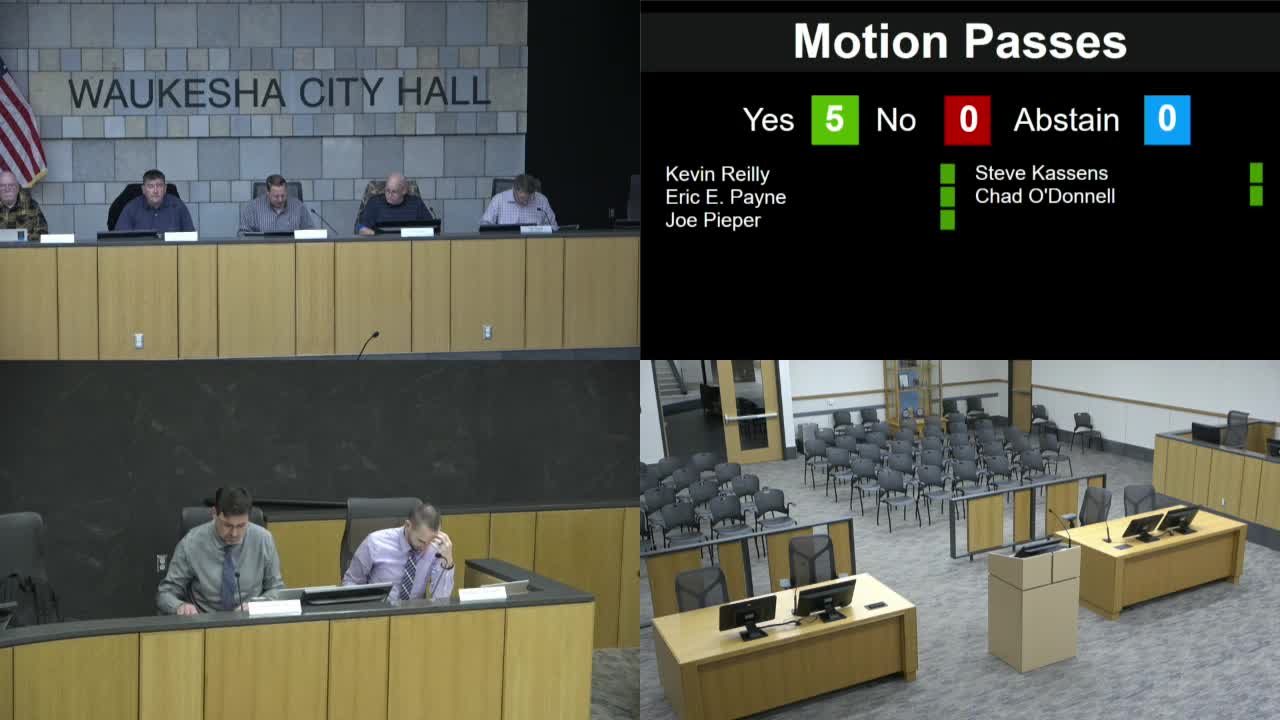Board of Public Works approves multi‑year traffic engineering contract to supplement vacant staff role
Get AI-powered insights, summaries, and transcripts
Subscribe
Summary
The Waukesha City Board of Public Works voted Nov. 6 to enter a multi‑year contract for traffic engineering project‑management services to provide technical support while the city’s traffic engineer position remains vacant.
The Waukesha City Board of Public Works voted Nov. 6 to enter a multi‑year contract for traffic engineering project‑management services to provide technical support while the city’s traffic engineer position remains vacant.
Staff said the city solicited proposals from 19 firms and received three responses — Kapoor, R.A. Smith and TADI — and recommended TADI based on its scoring and lower hourly rates. “We solicited for proposals from traffic engineering firms, 19 of them. We received responses from 3, Kapoor, R. A. Smith and TADI,” Alex, a city staff member, told the board.
Why it matters: staff said the contract will cover minimum operations such as signal maintenance, support for capital improvement program (CIP) projects and other routine traffic‑engineering tasks the city has lacked since the vacancy. Staff estimated annual consultant usage of about 1,300 hours, which would produce an estimated combined cost of roughly $222,000 when combining operating and CIP allocations ($145,000 operating; $75,000 CIP).
Board members asked about the work scope and whether the contractor would perform signal retiming and other adaptive signal work the city has missed since the vacancy. Alex replied that the consultant would work with staff to retime signals and “make those changes” needed for minimum operations and for adaptive responses to projects such as the bypass.
Financial context and staffing: staff compared the consultant costs to an in‑house traffic engineer salary range, noting the posted range for an Engineer 3 position is roughly $90,000–$127,000 annually. Staff said consultant hourly rates are higher than internal staff (roughly three times), but the consultant engagement is shorter term and targeted to 1,300 hours rather than a full‑time hire.
Board action: Payne moved to recommend the contract; Piper seconded. The board approved the recommendation by voice vote.
What’s next: staff said the contract is intended to be scalable — if the city hires a traffic engineer, the consultant work would be reduced or stopped. The contract is structured to support projects starting in 2026 and potentially continuing into 2027 if needed.
